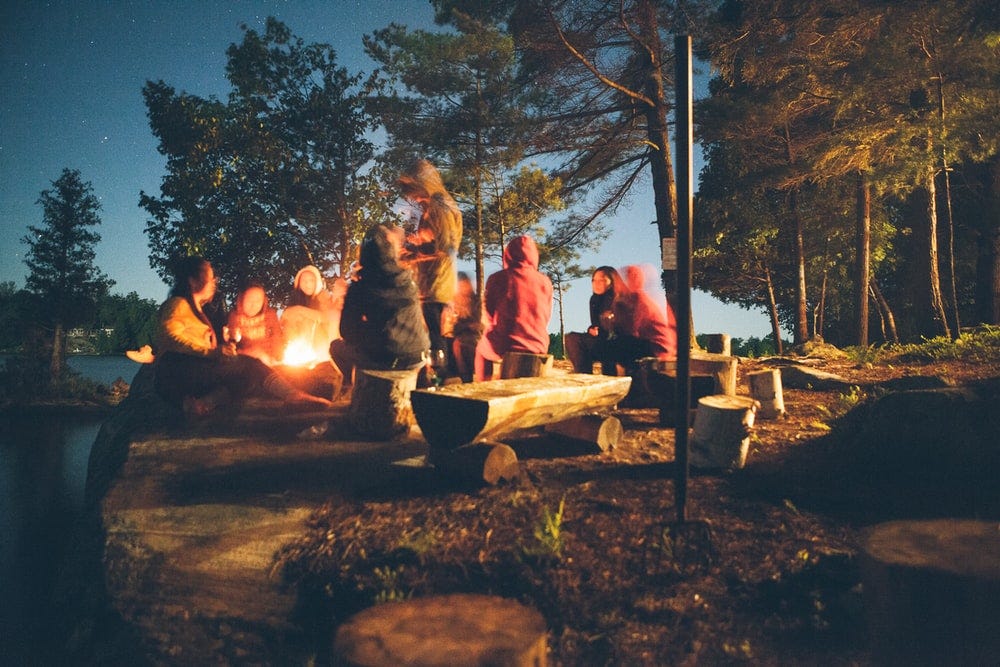I remember moving to San Francisco right out of college in 2009 and feeling surprised — maybe even turned off — by how often and obsessively people in the Bay Area talked about community. In retrospect, a lot of my internship and early career experience was community adjacent. And I loved it. But I hated talking about it.
Is that weird?
In my early 20s — and, like a lot of people in their early 20s — community was something that came naturally to me. Like breathing or making friends the first day on campus. Being lectured at about what community was — e.g. mutual respect, close listening, shared experience — felt oppressive and pedantic. On the East Coast there's this saying "all the loose marbles roll West" and at times it felt like I was in the midst of said loose marbles, politely listening to ground rules for interaction I learned in Kindergarten, wondering whether these people all somehow skipped school the day they were taught. (Of course, many of us ask this question of adults writ large today. But that's neither here nor there!)
Anyway, I write all the above because I realize, as I get older, I suddenly find myself legitimately interested in how community works. Maybe I've become a loose marble myself. Or maybe, because I no longer desire the spotlight quite as much, I've started paying more attention to the behind-the-scenes workings of communal experience. I appreciate a good conversation starter and a nice bottle of wine, but I've started to admire even more the person who makes a dinner party look effortless from start to finish. What does it mean, really, to plan not only a four course meal but actively curate the guests sitting around the table? How do you make them feel at home? How do you even make someone want to give you his or her time? How does one... make friends? I know a lot of my 30-something friends ponder the latter question. And since joining Uncut, I've been pondering all of the above even more.
We're on a mission to help podcasters better connect with their audience — in essence, to help them build community themselves — and in the process we're building our own community of podcasters, e.g. a group of incredibly creative and independent people spanning a wide range of audiences and niche interests. Podcasters on Uncut.fm will ultimately have their own episode pages, outside of the noise of social media and even one another. They don't HAVE to interact with one another per se. And yet, part of the joy of building Uncut.fm is creating a community around our vision where podcasters feel welcomed and encouraged in their creative work.
How do I create an environment like that from scratch? Make it look as effortless as a well-planned dinner party?
As I do my own reading on the process of building community, two common themes have emerged as answers to that question: communities need to give their members a sense of purpose and reward.
I'm still working out exactly what that means in the context of Uncut. So many OG podcasters have told me how just a decade ago, when podcasting was still incredibly nascent, they felt part of a community just by virtue of existing. Today, with the influx of more and more professional content and celebrities, that's not always necessarily the case. Finding a tribe isn't as easy. Amidst the onslaught of social media buzz and a 24/7 news cycle, so many of us have hunkered down into our closet and start broadcasting for a creative release. But we're still seeking that return signal. The human connection and sense of belonging that brought us to podcasting in the first place.
Is seeking it the sense of purpose, and finding it the reward?
Yours in hoping these vulnerable open questions and musings of a new community manager inspire you to reflect unironically on the meaning of community in your own life,
and very open to advice and wisdom as well,
Alicia


